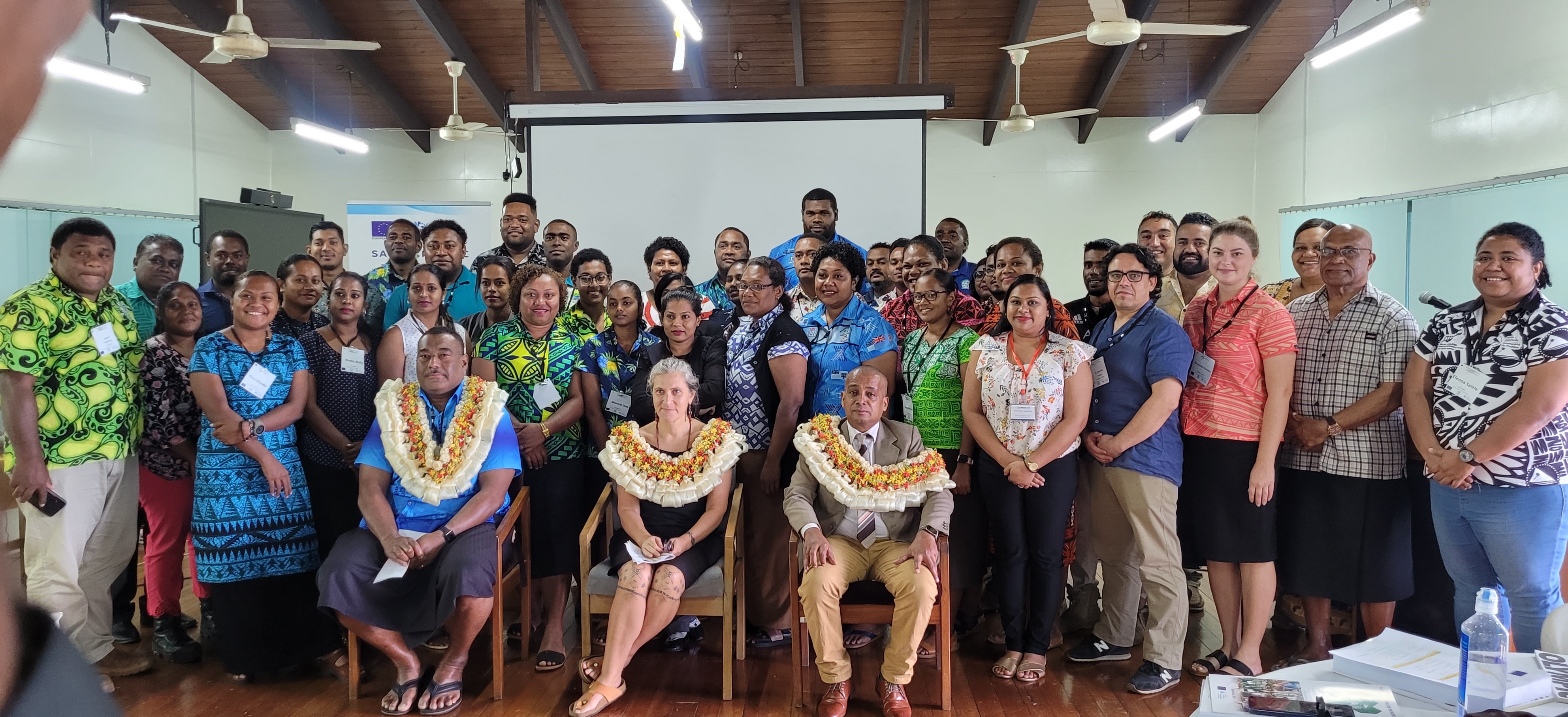Paraveterinary training for capacity building of Ministry staff
April 13, 2023

The Ministry of Agriculture and the Pacific Community (SPC) is conducting an Introductory Paraveterinary training for 26 agricultural officers in an effort to provide the necessary skills and knowledge for them to undertake their duties efficiently and with competency.
While addressing the participants at SPC in Narere, the acting Permanent Secretary for Agriculture and Waterways, Dr Vinesh Kumar said livestock plays an important role in the lives and cultures and also contributes to the livelihoods of the Fijian people.
“Having qualified animal health and production staff is essential to safeguard this resource and provide critical services to farmers with a high level of certification and confidence. Providing high-level services to farmers in Fiji is part of the mandate of the Ministry for Agriculture,” said Dr Kumar.
This year’s cohort consists of 26 staff, four of whom are from the Crop Extension Division and come from the areas that do not have access to livestock officers with the remaining 22 being the Animal Health and Production officers of the Ministry.
“These staff form the frontline that is the face of the Ministry at the farm level. By ensuring the staff of the Ministry undertake training programs as such, we are providing them with the necessary skills and knowledge to undertake their duties efficiently and with competency,” he said.
The participants will be tutored by ex-paraveterinary graduates and veterinarians from the Ministry.
“The course will run for 16 weeks after which Fiji will have 26 new paraveterinarians who will be able to provide not only services to farmers but will also train and support other staff. This will also help to increase the number of trained staff to improve the farmer and staff ratio within the Ministry,” said Dr Kumar.
He said this course is timely due to the chronic shortage of qualified veterinarians in Fiji and the Pacific, therefore, the load of day-to-day animal health-related field work will be attended by the paraveterinarians.
“With the emergence of transboundary diseases in the Pacific and its neighbours such as African swine fever and Foot-and-Mouth Disease, it is critical to strengthen our animal health capacity to ensure effective surveillance and early warning of possible incursions therefore this paraveterinary training is a good step in the right direction.”
He said the crop extension staff being trained as paraveterinarians is a way forward because there is an increase in the need for veterinary services.
“We are looking at key critical areas to build the competency of our staff through providing continuous technical training on areas such as Artificial Insemination and Pregnancy Diagnosis for them to perform with confidence while handling animals in the field,” said Dr Kumar.
The Director Land Resource Division of SPC, Ms. Karen Mapusua said that the lack of veterinary capacity in the Pacific has led to countries seeking other capacity development in animal health and production and recognising the need SPC has developed this paraveterinary training course.
She said paravets
play a vital role in animal health and production for Pacific island countries
being the main human resources on the ground that engage with farmers and carry
out extension work.
“The participants will be attending the Paravet Introductory course over the next 16 weeks which is a basic course to introduce concepts and allow them to perform basic animal husbandry and veterinary procedures.”
She said upon
successful completion of this course, the participants will have the necessary
knowledge and skills to treat sick animals, offer advice to farmers, and safely
handle animals.
The training is co-funded by the European Union under the SAFE Pacific Project.
-Ends-
